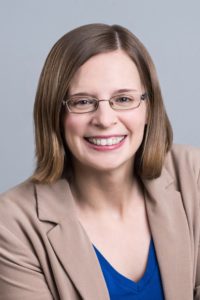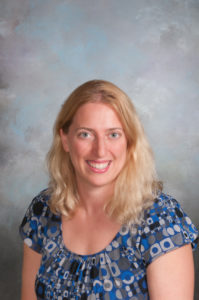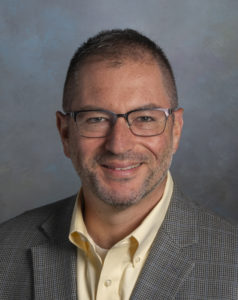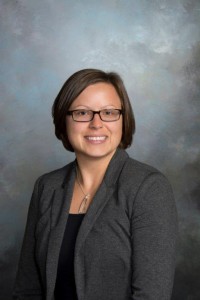
Robyn Shepardson ’05, a clinical psychologist and researcher at the Department of Veterans Affairs, is this year’s psychology graduate-in-residence.
Robyn Shepardson wants more mental health care to be available for veterans.
“They’ve experienced horrors of war that civilians cannot imagine,” said Shepardson, who earned a degree in psychology from the University of Mary Washington in 2005. “As a society, we owe it to those who have served to take good care of them when they leave the military.”
She hoped to impart her message – that integrating mental health into primary care settings is key to increasing access to service for veterans affected by repeated deployments, combat or traumatic brain injuries – during a recent visit to UMW.
This year’s psychology graduate-in-residence, Shepardson delivered a lecture titled “Increasing Access to Mental Health Treatment: Clinical Research Evaluating a Brief Anxiety Intervention for Primary Care Behavioral Health Settings.” The free public presentation took place in the Hurley Convergence Center Digital Auditorium on Thursday, Sept. 15. Read more.



